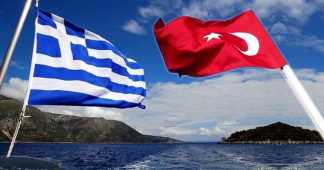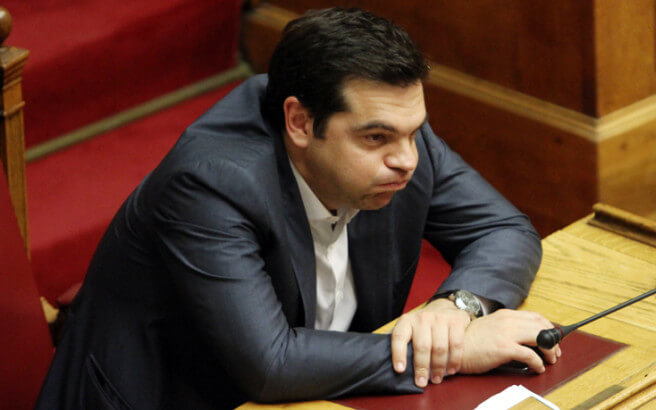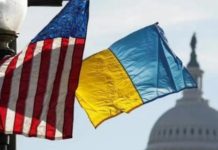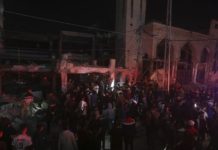Our tragedy is that we are not tragic.
Ramon de Valle Inclan
By Yangos Andreadis
“Our tragedy is that we are not tragic “. What can these words of Ramon de Valle Inclan mean to us today? Dead in 1936, the greatest of modern Spanish playwrights, has not faced the atrocities of the Spanish Civil War and those of the Second World War. Yet, even before the fascist coup of 1936, Spain, during the first decades of the 20th century, had already experienced not only spiritual and artistic efflorescence and a period of democratic freedom, but also violence, oppression and fear. And masterpieces like his Bohemian lights (Luces de Bohemia) demonstrate that Inclan was quite aware of violence, brutality and injustice present in Spanish Society. It therefore seems that when using the terms tragedy and tragic he rather referred to something else than adversity, suffering and disaster.
Mr. Omer Celik, spokesperson of the AKP Turkish ruling party and worldly renowned authority on Ancient Drama, has offered us a new occasion to reconsider Inclan’s words. His learned declaration of 18/8/20, stating that “Greece’s games can turn into Greek tragedy” and that “We [Turks] will not allow you [Greeks] to play Greek Theatre through diplomacy” clearly illustrate that he adheres to the interpretation of Tragedy as disaster, a disaster, he firmly believes could threaten anyone else but himself and his own country: Especially, a disaster threatening those that -besides their other misdeeds- had had the impertinence to invent tragedy as a theatrical genre. Despite the respect due to Mr. Celik’s authority on classic drama, we may however ask ourselves whether tragedy might be something different from what he meant in his threatening statement.
The radical ambiguity contained in the term Tragedy, namely “disaster” or -among others- “collective psychodrama aiming at autognosia, self knowledge connected to eterognosia knowledge of the other”, will offer us the starting point of the following short paper. Recognition, anagnorisis is a technical term proposed by Aristoteles in his Poetics. It literally means the recognition of the hidden identity of a person – a term which only partly corresponds to the English word character. Yet, anagnorisis can refer not only to the knowledge of someone else’s true identity but also to the unknown identity of the self, as it happens with Oedipus in Sophocles’ Oedipus the Tyrant. Discovering the hidden identity of the self and of the other, helps to avoid the division of tragic prosopa, persons, into °good° and °bad° ones.
Pierre Vidal Naquet has stated that the Persians were written by Aeschylus – a heroic fighter of the battle of Marathon himself- in order to lament the misfortune of the defeated enemy and to admonish the triumphant Greeks not to imitate the errors of their enemies. And Cornelius Castoriades has claimed that the glory of the Athenians consists in the fact that they have awarded Euripides with the first premium in the Great Dionysia competition for his play Trojan Women, denouncing Greek Crimes against the Trojans. I recollect with regret that years ago ,in Paris, we were planning with some dear Turkish friends to stage those two plays, all of us being completely aware of the fact that injustice and violence are not the privilege of a single nation or culture. Let me add that, to my great regret, despite my efforts, I am for the moment unable to get in touch with them in their country.
Our common plans to work on Greek tragedy stopped at the time Mr Erdogan started invading neighboring countries simultaneously increasing internal oppression in Turkey. I have already expressed my reservations concerning the uncritical use of tragic terms in the field of contemporary politics. Mr Erdogan might be a “good” or a “bad” character, it depends on the person expressing his appreciation concerning him and certainly President Trump’s opinion differs considerably from that of President Macron. Leaving aside judgments based on the rather absolute ideas of good and evil the Turkish President seems however a very adequate example of what an hybristes, a man driven by hubris, of the 21st century might be. The military operations undertaken by the Turkish army consist in an almost constant violation of all borders, including religious symbols, international law, civil rules and state frontiers. This is the typical definition of what Greeks called hubris, and what top world novelist Balzac in his Comédie humaine considered as impious transgression of limits.
Tragedy does not constitute a Greek monopoly. It is, as a genre but even more as an almost universal bunch of aesthetic and moral values, international or ecumenical). Greek or rather Athenian tragedy has travelled to all regions where Hellenes lived and were building ancient Greek Theatres , including Sicily, South Italy and Asia from the East Mediterranean to the frontiers of China at Alexandreia e eschate. It has influenced philosophy ancient and modern and, since the staging of Edipo Tiranno at the teatro Olympico in Vicenza in 1582 it has become a central part of European theater. Tragedy however is not only Greek. The Elizabethans, the Spanish playwrights of the Siglo de Oro, Corneille and Racine have created their own tragic masterpieces. The creation of Opera at the end of the 16th century was another major European attempt to enter in dialogue with the Greeks creating an aesthetic equivalent to tragedy. Wagner. Hegel, Heidegger, Freud, Brecht were among those that gave new perspectives to the dialogue of Europe with Greek drama. Comparative research as well as the staging of the world’s masterpieces have demonstrated that India, China, Japan have created their autonomous approaches to the tragic. The only major world culture that has refused the dialogue with tragedy is Islam. The Arabs, at the pick of their cultural efflorescence have translated all the works of Aristotle except one: The Poetics dealing with Tragedy. The reason is that tragedy is often criticizing not only individuals or the secular power but also the divine, which for Islam, or at least for radical Islamists, must remain beyond criticism. Greeks were not atheist, but tragedy is the unquestionable proof that they thought it their right and their duty to criticize everything, including Gods. And all other cultures with the exception of radical Islam, finished by recognizing tragedy as central part of their cultural heritage.
I will now refer very shortly to three tragic concepts oscillating between the secular and the sacred. Hybris, phobos and catharsis. Hubris –the English word for hybris– can be partly understood in a technical sense. In that sense it means to trespass a territory, to go beyond the permitted real or symbolic borders. Invading or planning to invade a foreign territory, constitutes therefore a hubris which is followed by the tisis, literally the penalty the trespasser should pay. Yet, passing from hubris to tisis is not automatic. It depends on human action and also to the intervention of luck, Tyche, honored by Greeks as a goddess. Despite what Hegel and others have sustained, Creon is correctly considered both by modern scholarship and theatre audiences as the one who commits hubris in Sophocles’ Antigone. He is the one who insults the laws of the family as well as those of the polis -the city state of Thebes- and the Gods. Antigone is accused of having acted against Creon’s law, but this law is illegal, because it is impious and antidemocratic. So everything changes and Thebes reaches at the end of the play a religious and political catharsis because the forbidden burial of Polynikes’ corpse by Antigone generates an epidemic of liberating disobedience producing the radical change of the characters, the polis and the cosmos of the gods. No catharsis would have happened without this and no survival of modern democracy would have occurred without the resistance of millions of people against Hitler’s and Mussolini’s terror.
Phobos –fear- along with words like nosos –disease- mania –madness- is quite common in tragic texts. References to phobos do not mean that the ancient tragic genre makes part of what anthropologists call a fear culture -a culture dominated by fear. Tragedy’s aim is not to succumb to fear but to be able to control rationally irrational fears. Such control can become a tool of dignified behavior and effective action and a cure of psychic and civic disease – be it madness, impiety, tyranny or hubris- by catharsis. It may not be a coincidence that according to Pausanias, the Spartans considered the most fearless warriors among Greeks, were the only ones to venerate a statue dedicated to Phobos, the deified fear, whom the Young Spartans were trained to control, to face. One of the leading Greek poets of the 20th , Andreas Empeirikos has masterfully expressed this idea in his epigrammatic verse: “The fear of death has become the motive for creative life”.
Tragedy should serve as paedeia: An organized transmission of global knowledge, psychic, corporeal, political. Indeed, it was conceived as such when the Sikelianos couple, the leading poet Anghelos and the theatre director Eva Sikelianos- Palmer, have inaugurated the ancient tragedy interpretations in ancient theatres at the Theatre of Delphi in 1929. The Delphic Festival they conceived together was meant as an aesthetic and political answer to the decline of the League of Nations and the rise of Fascism and Nazism through a revival of the great theatrical past in dialogue with vanguard experiments.
Although the results of their initiative were important and long lasting, their ambitious achievement has remained incomplete, in the sense that their modernist project of a vigorous synthesis between the psychic, the spiritual and the political is not what dominates at the moment. The necessity of a creative revival with both aesthetic and political purposes remains, however, urgent and corresponds with the necessity to remember: To remember the aesthetic, moral and political codes, to remember and reinvent what is threatened at a planetary scale by globalization. To be able to remember is necessary in order to see, to foresee, to survive and to live. No external threat can be faced unless one is helped by Mnemosyne, the Goddess of Memory and sister of Propheteia, the goddess of Prophesy, whose blessing enables us to guess and to react.
The present article Untrained in Tragedy III is the third of a series with the same title. The first was referring to the Covid19 pandemic and its relation with the logos of the epic and the tragic poets and their successors to this day. The second referred to the tragedies generated by the interminable series of the 21st century wars. The present one with some basic tragic concepts reemerging in the same way that repressed feelings and ideas reemerge from the depths of the unconscious. It constitutes a direct reference to tragedy itself, which often becomes either part of flat and vulgar political rhetoric or of superficial theatrical interpretations. Dialogue with tragedy might help us to acquire some of the knowledge, the measure and the courage we badly need.
*My warm thanks to Yannis Alevizos for all the advice and encouragement.











